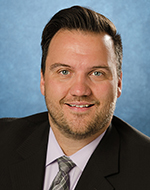Page Content
 The Association’s Annual Representative Assembly is not known to shy away from controversy. In fact, it periodically seems to revel in it. This past weekend was no exception as the assembly took on one of the most controversial ongoing issues in society: religion in education.
The Association’s Annual Representative Assembly is not known to shy away from controversy. In fact, it periodically seems to revel in it. This past weekend was no exception as the assembly took on one of the most controversial ongoing issues in society: religion in education.
Lately there has been growing tumult about the state of Catholic education in Alberta. Troubling news stories have emerged in recent years that have caused some people to conclude that Catholic education should be defunded.
It is clear that Catholic boards are under intense pressure — pressure to deal reasonably with matters of human rights and pressure to remain faithful to their Catholic roots. All of this is occurring under careful public scrutiny in the age of social media. And the stakes are high, with some people pushing for dramatic changes to how Catholic education is funded and organized. At least two former ministers of education have weighed in heavily on these issues.
Many of the issues arise from tensions that permeate Catholic institutions here and around the world as they wrestle with changing societal norms while trying to remain true to traditional Catholic views. These include issues related to marriage and pregnancy, but obviously one of the most significant issues is the treatment of people who identify as LGBTQ+.
Within the church there is a diversity of opinion on the matter. Pope Francis seems to be setting a new tone in the conversation as he pushes for greater respect for gay people. At a press conference last year he asked, “Who are we to judge them?”
“I will also repeat what the catechism of the Catholic Church says: that [gay people] should not be discriminated against, that they have to be respected, pastorally accompanied,” said the pontiff.
Although the Pope’s message was clear, some cardinals and bishops expressed concerns. In Alberta, much of the tumult around Catholic education really arises from the variety of opinions held by those of the Catholic faith. The Alberta Teachers’ Association has been accused of being anti-Catholic because of its promotion of supports for LGBTQ+ students, with some of this criticism coming from Catholic teachers, superintendents and trustees.
But that accusation is justified only if one views the supports for LGBTQ+ students and teachers as being against Catholic doctrine. Most of the Catholic teachers I have talked to don’t see the conflict and instead view their support for vulnerable populations as being very consistent with church teaching.
Provincial Executive Council believed the time was right for teachers to have their say on these important matters and to establish clear policy for the Association. PEC put forward three resolutions that were debated at last weekend’s ARA (see resolutions 3-59, 3-60 and 3-61 on page 18).
The resolutions were debated with care, sensitivity, thoughtfulness and professionalism by the 450 teacher representatives assembled.
As a result, we ended up with policy that states clearly that the ATA affirms the importance of and supports the legitimacy of Catholic education, but also highlights issues that need to be resolved.
The first resolution expresses clear support for Catholic education, describing it as a vital component of Alberta’s public education system. However, it also asserts that the support is dependent on boards operating in accordance with human rights legislation.
Related to that, teachers passed with overwhelming support a second resolution that argued that, despite their denominational rights, separate boards should treat all teachers equitably relative to their employment rights.
Finally, teachers also urged Catholic boards to respect teachers’ right to exercise their professional judgment in lesson planning, evaluation and the selection of resources, and professional development.
Taken together, the resolutions demonstrate appreciation and support for Catholic education, but also take a firm stand on some problematic issues that exist in some places, where they are defended in the name of Catholicity.
We learned as well that practices within Catholic school systems vary greatly across the province. Some Catholic members identified that human rights issues are not present in their jurisdictions, as their boards resolved them long ago, whereas other members say these issues are still very relevant in their areas.
Ultimately, I feel that, in passing these resolutions, teachers are saying to Catholic boards “we support your work, but we need you to clean up some of the problems that persist.” It is an important and principled stance that, if heeded, would likely engender greater public support for Catholic education.
Well done, delegates. ❚
I welcome your comments — contact me at jonathan.teghtmeyer@ata.ab.ca.
